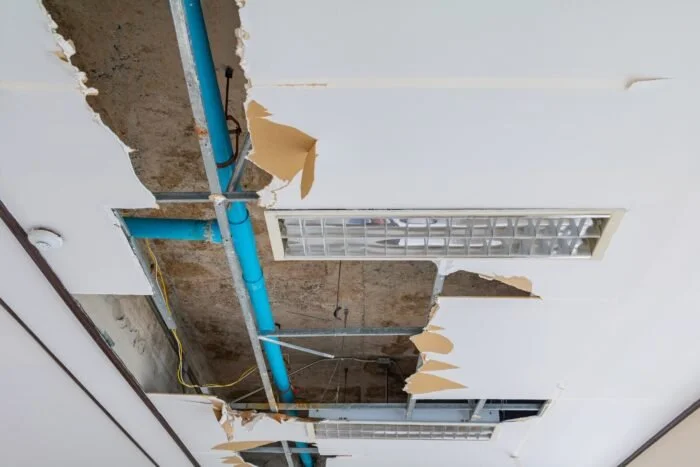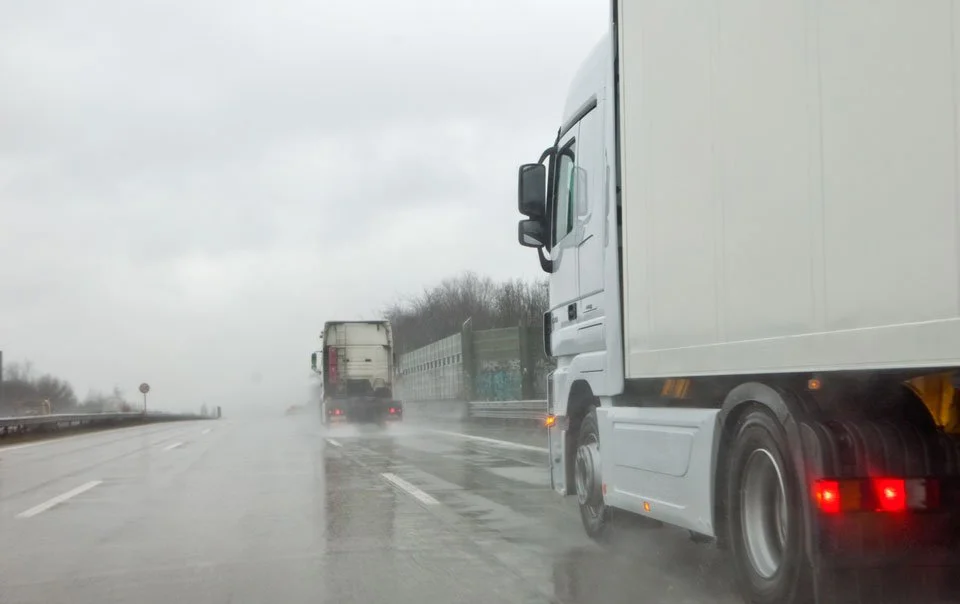While material costs continue to rise because of inflation, and potentially tariffs, labor costs are increasing more steeply because of a supply/demand imbalance, especially among skilled trades such as electricians. The demand for skilled trades drives up costs because workers can command higher wages.
Read MoreAn analysis of more than 1 million small-business insurance policies reveals that water and freezing damage claims have risen significantly over the last decade to become a top risk alongside burglary, while fire damage remains the costliest incident, averaging $80,000 per claim.
Read MoreDuring the first 24 hours following a major winter storm, your response will make a critical difference in the pace at which your business can recover and get back into full operation. Both the protection of your property and the safety of your employees are critical to your business resilience.
Read MoreWinter driving conditions can be prime time for accidents involving skidding or losing control. Ice and snow are common hazards that often come to mind. Whether you have employees driving occasionally for an off-site business meeting or an entire fleet of drivers transporting goods, help keep them and others safe by sharing these precautions to help avoid losing control at the wheel.
Read MoreOne of the great things about business insurance is that you can control your costs when choosing your coverage. That’s mainly because providers offer flexibility in setting your policy limits and deductibles. These features affect your costs in different ways and can be fine-tuned to ensure you have the protection you need at a price you can afford.
Read MoreRetailers face mounting pressure to absorb rising costs, maintain customer satisfaction and adapt to shifting trade dynamics. The stakes are especially high for small and mid-sized businesses. In this climate, understanding and responding to the evolving trade landscape is essential to ensure stable operations.
Read MoreLarge numbers of companies have no rules in place for the use of AI in the workplace despite the constant use. Without any restrictions, employees could unintentionally share sensitive data, increasing the chances of a data breaches.
Read MoreAs the fall colors fade, commercial building owners and facility managers find themselves amid another seasonal transition. While the start of every season has challenges, the fall season brings a tougher set of challenges for commercial structures than other seasons.
Read MoreWorkplace accidents can happen anytime to any type of worker. You do can everything in your power to avoid them, but just like any life occurrence, anything can happen. Accidents happen every day, in fact, and in every industry. Find the 10 most common workers comp claims.
Read MoreAccording to the Surety & Fidelity Association of America, surety bonds provide the most comprehensive risk management tool available to protect against default and ensure contractual obligations are met. Different kinds of surety bonds provide coverage to ensure compliance with local, state or federal requirements, guarantee tax or other financial obligations, or guarantee performance of an underlying contract.
Read MoreWhile damage caused by some types of natural events—such as lightning or wind—will usually be covered by commercial property insurance, you need a special policy if you want protection from flood damage. Read on to see what the most frequently asked questions are and the answers.
Read MoreInsurance provides critical financial protection to small businesses. However, coverage gaps can jeopardize that protection. A coverage gap exists when the potential financial impact from events exceeds the protection a company’s business insurance portfolio provides.
Read MoreThis article provides an overview of home business insurance, explaining what it is, the different coverages, what business insurance for a home-based business costs, and more. If you’re researching home business insurance coverage, it’s a must-read!
Read MoreFrom financial repercussions to reputation in market, one can't know how badly it could affect you and your business. Imagine, for a moment, one of your suppliers' contracts fall through and he/she drags you to the courtroom or an employee sues your company for the non-payment of salary/dues. Somehow you find yourself stuck amid lawsuit troubles and much more.
Read MorePressures from inflation can affect companies of all sizes. These can be especially significant for small business owners who may have fewer resources to hedge against the impact that rising costs could have on their bottom line.
Read MoreCompanies may be responsible for the negligent or illegal conduct of an employee. Therefore, when the company hires an employee, reasonable steps should be taken to check references and other background information – especially the motor vehicle record (MVR) when driving is one of the employee’s responsibilities.
Read MoreSavvy business owners know to follow safety precautions and best practices for the workplace. But whenever you or an employee leave your premises to conduct business off-site, the liability risk doesn’t end there. Do you have the right off-site safety measures in place?
Read MoreInternal risks such as exposure from operational processes and procedures are often easier to control. However, external risks such as exposures that may be introduced through partnerships or other parties hired to provide a service for your business, are more difficult to control.
Read MoreThere are many factors that have a role in creating an occupational heat stress risk to workers. These factors include:
Environmental conditions
Presence of heat sources
Level of physical activity
The Terrorism Risk Insurance Act (TRIA), ensures that adequate resources are available for businesses to recover and rebuild if they are the victims of a terrorist attack. It is offered separately or as a special addition—called an “endorsement” or “rider”—to your standard commercial property insurance policy.
Read More



















